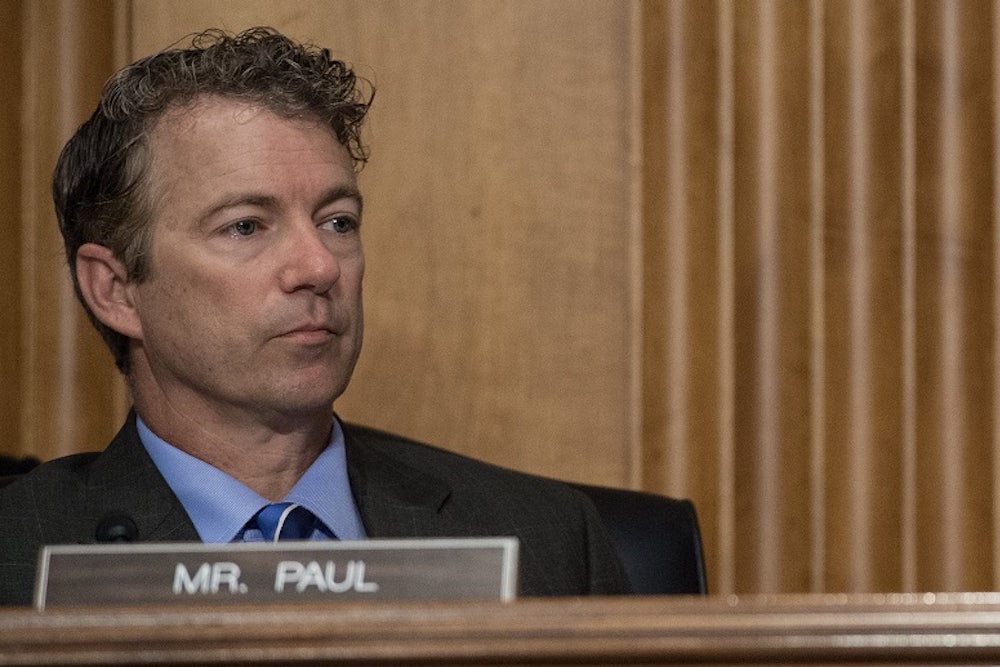In an article co-authored with the Heritage Foundation’s Stephen Moore in Investor’s Business Daily on Wednesday, Senator Rand Paul criticized President Barack Obama’s economic policies and outlined his plan for increasing middle class wages. Paul may be a leading Republican presidential candidate and one of the deepest policy thinkers in the GOP, but his economic worldview contains a gaping hole.
Paul took issue with almost every part of Obama’s policy agenda: from the stimulus and Obamacare’s employer mandate to energy regulations and the president’s current push to increase the minimum wage. By Paul’s account, reversing all of these policies—repealing Obamacare, cutting spending, deregulating the energy industry—would lead directly to higher wages and more working hours for employees. This critique fundamentally misunderstands the reasons behind the weak recovery and overlooks the best way to raise middle-class wages.
The slow growth during Obama’s presidency has been caused by a deep hole in aggregate demand—the demand for goods and services in the economy. The economy does not have enough people buying stuff. The stimulus provided billions of dollars to help fill that hole. The Federal Reserve has kept interest rates at zero since 2008 and has used unconventional policy tools to further incentivize firms to invest. Both the federal government and the Fed’s policies succeeded in avoiding a second Great Depression, but were insufficient to create strong growth. They were unable to fill the hole in demand—a hole that still exists to this day.
If Rand Paul wants to increase middle-class wages, his number one goal should be to return the economy to full employment—to fill that hole. When the economy is at full employment, employers must compete for workers. That gives workers leverage to demand better wages, working conditions and benefits. As Jared Bernstein and Dean Baker document in their e-book Getting Back to Full Employment, the U.S. economy hasn’t been at full employment since the late 1990s and even that was due to the dot-com bubble. That also was the last time the middle class saw their wages rise.
If Paul wants to replicate that wage growth without a bubble, he should put forward ideas to fill the current gap in demand. Ultimately, he’s right that raising the minimum wage won’t make a substantial difference on middle-class wages. He’s right that the employer mandate, which was delayed until next year, may lead employers to cut back on workers’ hours. He’s even right that taxes on capital decrease business investment. But despite all of these critiques of Obama’s agenda, Paul fails to offer a platform that would create tight, sustainable labor markets that would empower workers to demand higher wages.
This flaw is not unique to Paul’s worldview. It is a hole in the entire Republican economic agenda. It’s highly likely that the Republican presidential primary will not include a candidate with a credible plan for returning the economy to full employment during economic downturns. Paul’s op-ed is just a preview of what’s to come.
